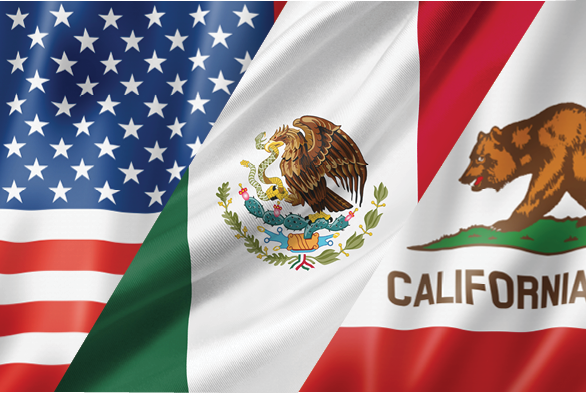
Sonora’s strategic advantages in the manufacturing of renewable energy and potential to become the “Silicon Valley of Mexico” was the focus of the 15th Annual Mexico Advocacy Day International Forum presentation on August 7.
California Chamber of Commerce President Jennifer Barrera gave the forum’s welcoming remarks, which was attended by close to 90 business and government leaders, including 11 California legislators.
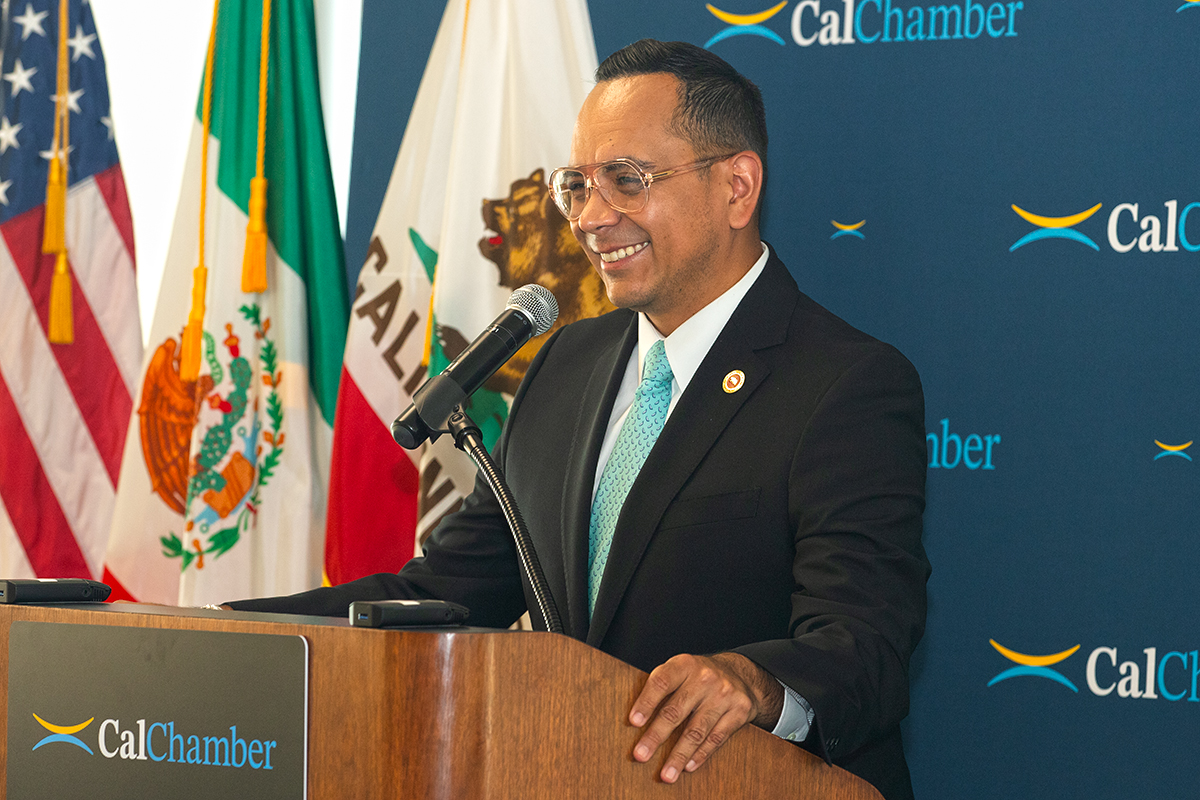
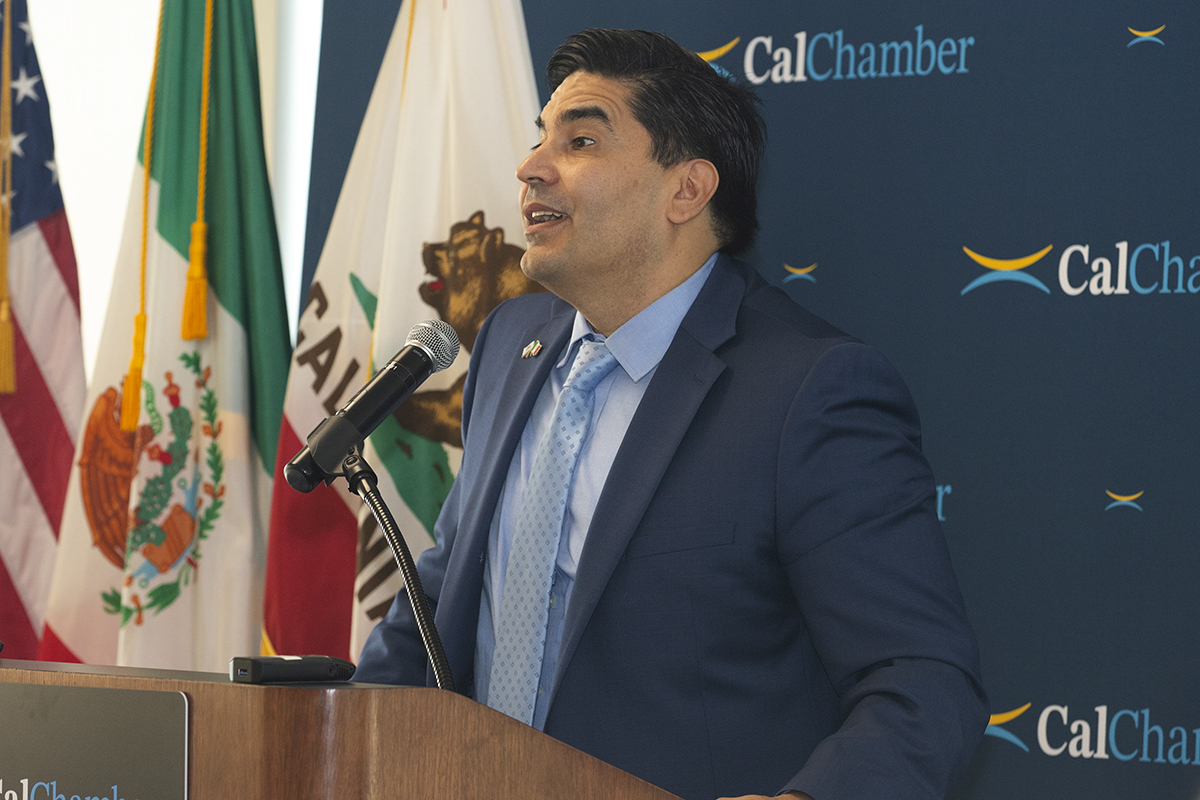
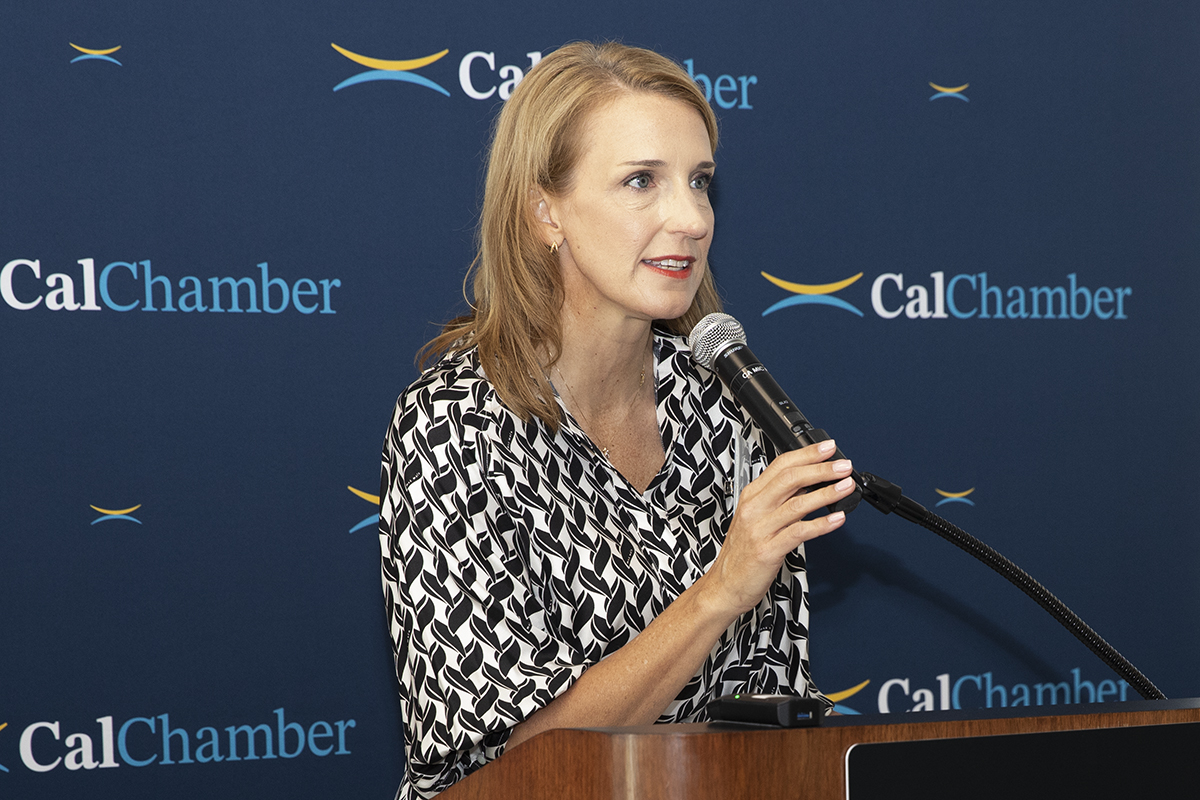
Mexico Advocacy Day
Mexico Advocacy Day was started by the Consulate General of Mexico in 2010 to provide a platform that highlights the importance of the relationship of Mexico with the United States and California.
As part of this year’s Advocacy Day, the California Select Committee on California-Mexico Cooperation and Dialogue held an informational hearing on Tuesday, August 6 focusing on “Building an Agenda with a Gender Perspective through Bilateral Cooperation Between Mexico and California.”
A reception was held later that evening at the Leland Stanford Mansion hosted by the Mexican Consulate General.
To close Mexico Advocacy Day, the CalChamber and the Consulate General of Mexico in Sacramento presented the August 7 International Forum, which featured as keynote speaker Dr. Francisco Acuña Méndez, chief of staff to Sonora Governor Alfonso Durazo and honorary president of Sonora’s Council for Sustainable Development (CODESO).
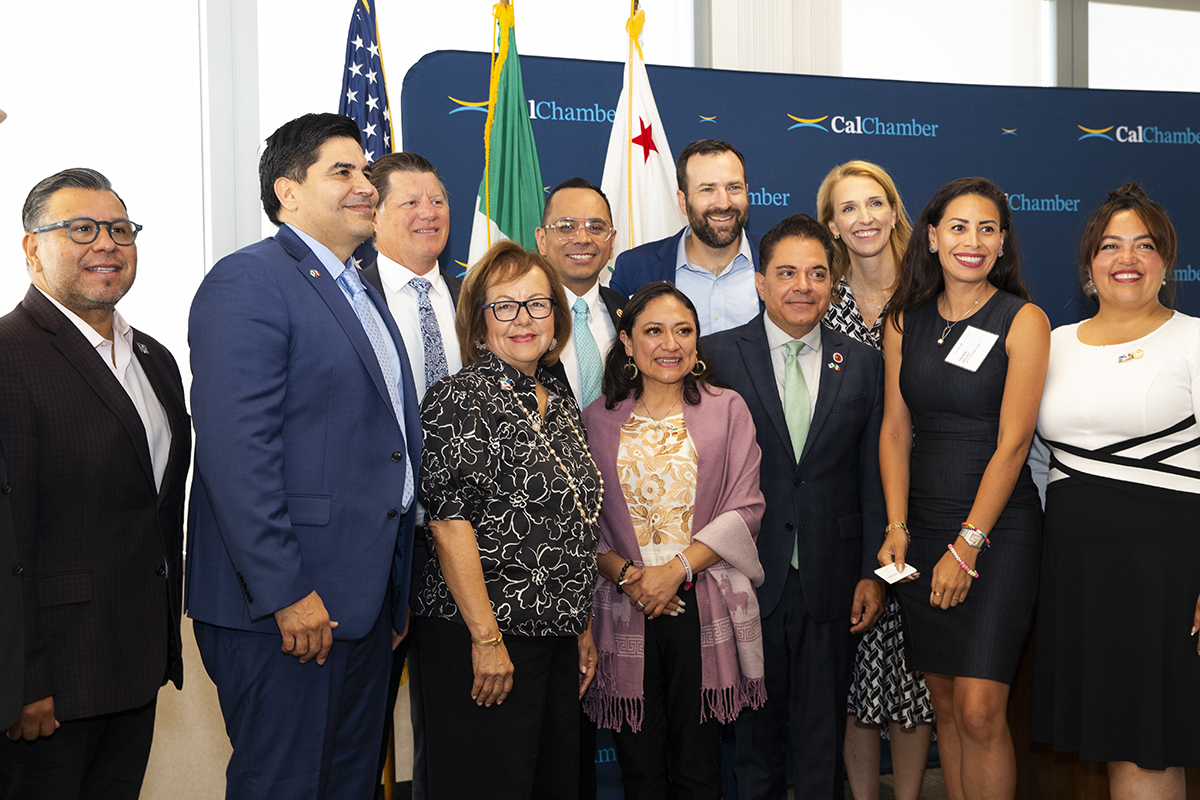

Mexico Consul General
Introductory remarks were given by Consul General of Mexico in Sacramento Christian Tonatiuh González Jiménez.
González most recently served as chief of protocol and public diplomacy at the Permanent Mission of Mexico in the United Nations. During Mexico’s participation as an elected member of the U.N. Security Council, the Consul General served as the spokesperson and was in charge of disseminating Mexico’s activities, results and positions in the U.N. Security Council.
The Consul General, who is also an attorney, further served as a delegate for Human Rights, Cultural, Social and Humanitarian Affairs, and managed the Cultural Affairs sector during his tenure in the Mexican delegation to the U.N.
Sonora Plan
Dr. Francisco Acuña Méndez began his remarks by sharing that it was Mexico President Andrés Manuel López Obrador’s vision to turn Sonora into the Silicon Valley of Mexico. President Obrador identified the need to develop clean energy, concentrate talent in Sonora, and to utilize the minerals produced in the state, which has the second largest mine in the world for copper and has large reserves of lithium and other minerals.
This vision is what developed the Sonora Plan, which will not only generate clean energy for Mexico, but has the potential to export to the United States, Acuña said.
The State of Sonora is working on a memorandum of understanding (MOU) with the California Energy Commission that, among other things, would establish electromobility charging stations. Sonora’s close proximity to California would facilitate the export of clean energy—produced by renewable hydrogen and solar energy, he said.
The state is investing in new manufacturing facilities that will partner with companies in California, Arizona and Texas. These new facilities will create high-value manufacturing jobs on both sides of the border that will focus on semiconductors, automation and production of electric vehicles, Acuña said.
He points out that these three sectors make Sonora a better, closer alternative than Southeast Asia. Sonora not only borders Arizona and Texas, but it also has the only port in Mexico that connects to the U.S. through a railroad system—the Port of Guaymas.
The port has received significant investment by the Mexican government and is working with Europe’s Port of Antwerp-Bruges to develop the port so it can become competitive around the world and in North America.
More than 250 multinational companies work in Sonora, spanning the automobile industry, such as Ford Motors, agribusiness, electric vehicles, electronic, semiconductors, aerospace, renewables and minerals.
The state also is investing in education. Acuña said that to educate its workforce on renewable manufacturing, Sonora will be sending 30 students to Taiwan universities to learn about the semiconductor industry. It also is creating industrial and science innovation centers to teach the next generation of manufacturing. Additionally, the state is developing an agenda to teach all children in public schools English.
In addition to clean energy, Sonora is also focusing on transition energy, through liquified natural gas (LNG). It has become a hub that is competing with Qatar and other regions, he said.

